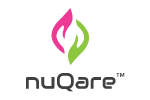The landscape of oncology care is constantly evolving. Advancements in treatment protocols, targeted therapies, and personalized medicine demand a robust healthcare infrastructure to deliver optimal patient outcomes. In this ever-changing environment, individual oncology practices face unique challenges in maintaining efficient workflows while providing exceptional care.
This is where Electronic Medical Records (EMR) systems emerge as game-changers. By replacing paper-based charts with a centralized digital platform, EMRs empower oncologists to streamline processes, improve patient care coordination, and ultimately, unlock efficiency within their practices.
The Inefficiencies of Paper-Based Systems
Traditional paper-based medical records are riddled with inefficiencies that hinder smooth practice operations. Here’s a glimpse into the challenges they pose:
- Time-Consuming Data Management: Locating specific patient information often involves sifting through bulky files, wasting valuable time that could be dedicated to patient interaction.
- Data Silos and Inaccessibility: Paper records are static and often confined to specific locations, making it difficult for authorized personnel to access patient data remotely, hindering collaboration and timely decision-making.
- Prone to Errors: Manually recording and transcribing data increases the risk of errors, potentially leading to misdiagnosis or delayed treatment.
- Limited Reporting Capabilities: Extracting data for insightful reports and performance analysis becomes a cumbersome task with paper records.
These inefficiencies not only impact practice productivity but also hinder the quality of patient care.
Unlocking Efficiency with EMRs
EMR systems offer a compelling solution to these challenges, transforming the way individual oncology practices operate. Here’s how EMRs unlock efficiency:
- Streamlined Workflow: EMRs automate many administrative tasks, such as appointment scheduling, prescription refills, and lab test ordering, freeing up valuable time for oncologists to focus on patient consultations and treatment planning.
- Enhanced Data Management: EMRs provide a centralized platform for storing and managing all patient data electronically, ensuring easy access and retrieval of information from any authorized device.
- Improved Care Coordination: EMRs facilitate seamless communication and information sharing between oncologists, nurses, and other healthcare professionals involved in a patient’s care, fostering a collaborative approach.
- Reduced Errors: EMRs offer features like computerized physician order entry (CPOE) and medication dispensing alerts, minimizing the risk of errors associated with manual data entry.
- Advanced Reporting and Analytics: EMRs integrate seamlessly with reporting tools, enabling practices to generate comprehensive reports on patient demographics, treatment outcomes, and practice performance, empowering data-driven decision-making.
These benefits translate to a more efficient oncology practice, allowing healthcare professionals to deliver superior care to their patients.
nuQare EMR: Tailored for Modern Cancer Care
nuQare EMR is a cutting-edge EMR system designed specifically for the needs of individual oncology practices. Built as a cloud-based web application, nuQare EMR offers a user-friendly interface and a comprehensive suite of features to streamline all aspects of the oncology workflow, including:
- Comprehensive Patient Records: nuQare EMR allows for the creation and management of detailed patient profiles encompassing medical history, allergies, medications, treatment plans, and progress notes, providing a holistic view of each patient’s health journey.
- Assisted Diagnosis & Treatment: nuQare EMR integrates clinical decision support tools and treatment protocols, assisting oncologists in making informed treatment decisions based on best practices and the latest clinical evidence.
- AI and Customization: nuQare EMR leverages the power of Artificial Intelligence (AI) to personalize treatment plans and predict potential risks, empowering oncologists to deliver more effective and targeted therapies. Additionally, nuQare EMR offers a high degree of customization, allowing practices to tailor the system to their specific workflows and preferences.
- Patient Retention: nuQare EMR facilitates patient engagement through features like secure patient portals and appointment reminders, fostering better communication and promoting patient satisfaction, ultimately leading to improved patient retention.
- Secured Communication: nuQare EMR prioritizes patient privacy and data security. The system employs robust encryption protocols and access controls to ensure that patient information remains confidential and accessible only to authorized personnel.
By incorporating these features, nuQare EMR empowers individual oncology practices to achieve new levels of efficiency, optimize workflows, and deliver exceptional cancer care to their patients.
In Conclusion
The adoption of EMR systems signifies a paradigm shift in the way individual oncology practices operate. By eliminating the inefficiencies of paper-based records and offering a comprehensive suite of features, EMRs unlock efficiency, improve patient care coordination, and empower healthcare professionals to deliver superior cancer care.
nuQare EMR stands out as a leading EMR solution specifically designed for the needs of modern oncology practices. With its user-friendly interface, advanced functionalities, and commitment to patient privacy, nuQare EMR empowers oncologists to focus on what matters most – providing exceptional care to their patients.


